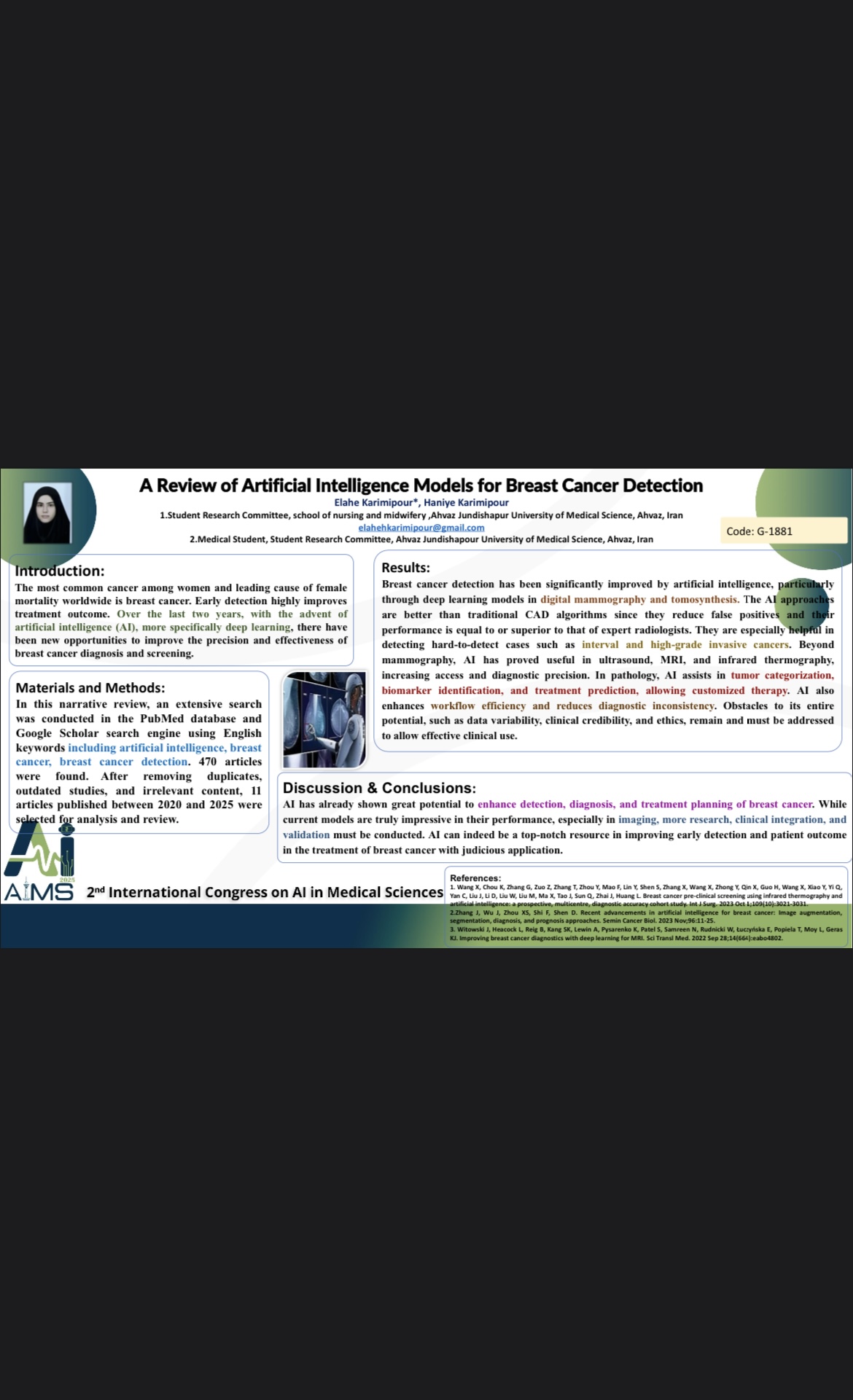A Review of Artificial Intelligence Models for Breast Cancer Detection
Code: G-1881
Authors: Elahe Karimipour * ℗, Haniye Karimipour
Schedule: Not Scheduled!
Tag: Cancer Diagnosis & Treatment
Download: Download Poster
Abstract:
Abstract
Background and aims: The most common cancer among women and leading cause of female mortality worldwide is breast cancer. Early detection highly improves treatment outcome. Over the last two years, with the advent of artificial intelligence (AI), more specifically deep learning, there have been new opportunities to improve the precision and effectiveness of breast cancer diagnosis and screening. Method: In this narrative review, an extensive search was conducted in the PubMed database and Google Scholar search engine using English keywords including artificial intelligence, breast cancer, breast cancer detection. 470 articles were found. After removing duplicates, outdated studies, and irrelevant content, 11 articles published between 2020 and 2025 were selected for analysis and review. Results: Breast cancer detection has been significantly improved by artificial intelligence, particularly through deep learning models in digital mammography and tomosynthesis. The AI approaches are better than traditional CAD algorithms since they reduce false positives and their performance is equal to or superior to that of expert radiologists. They are especially helpful in detecting hard-to-detect cases such as interval and high-grade invasive cancers. Beyond mammography, AI has proved useful in ultrasound, MRI, and infrared thermography, increasing access and diagnostic precision. In pathology, AI assists in tumor categorization, biomarker identification, and treatment prediction, allowing customized therapy. AI also enhances workflow efficiency and reduces diagnostic inconsistency. Obstacles to its entire potential, such as data variability, clinical credibility, and ethics, remain and must be addressed to allow effective clinical use. Conclusion: AI has already shown great potential to enhance detection, diagnosis, and treatment planning of breast cancer. While current models are truly impressive in their performance, especially in imaging, more research, clinical integration, and validation must be conducted. AI can indeed be a top-notch resource in improving early detection and patient outcome in the treatment of breast cancer with judicious application.
Keywords
Artificial Intelligence,Breast Cancer, Breast Cancer Detection
